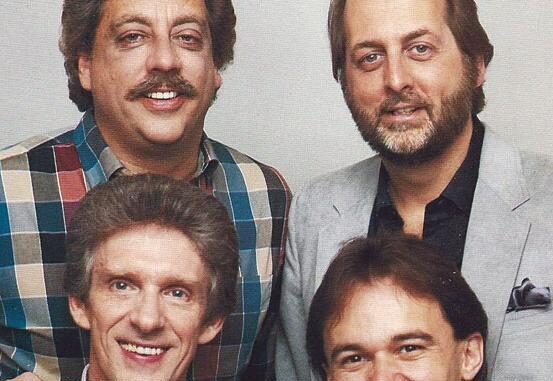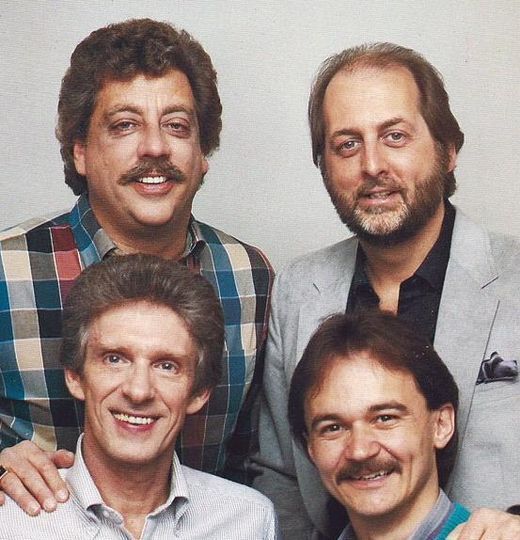
In 1963, as Johnny Cash was riding high on the success of *Ring of Fire*, a serendipitous meeting at the Virginia Roanoke Fair introduced him to a group of talented young singers. The Statler Brothers, with their rich harmonies and distinctive sound, impressed Cash so much that he invited them to join his tour with nothing more than a simple handshake. This collaboration would last over a decade and later inspire the song *We Got Paid by Cash*, which paid homage to their journey with the country legend.
To explore the fascinating story of this renowned group, known for their emotional ballad *More Than a Name on the Wall*, let’s take a closer look at their history. Originally called The Kingsmen, the group had to change their name in 1963 when another band gained success with the hit *Louie Louie*. During a hotel stay, members Don and Harold Reid, along with Phil Balsley and Lew DeWitt, brainstormed new names. Inspiration struck when Don noticed a box of Statler tissues, leading them to become The Statler Brothers. Reflecting on the serendipitous choice, Don joked, “We could have ended up as The Kleenex Brothers.”
Their big break came when Johnny Cash saw them perform at the Roanoke Fair in Salem, Virginia. Their seamless blend of gospel and country captivated Cash, and he immediately invited them to join his touring ensemble. Without contracts or formalities, the handshake that sealed their agreement launched a fruitful and long-lasting partnership.
Recalling his time with Cash, Don Reid once said, “He was a living, breathing encyclopedia of music.” Over the next ten years, The Statler Brothers toured extensively with Cash, made numerous television appearances, and recorded hit songs. Their breakthrough came in 1965 with *Flowers on the Wall*, a song that topped both pop and country charts, earning them two Grammy Awards, including Best New Country and Western Artist. In a testament to their success, they even outshone big names like The Beatles and The Supremes.
The song *Flowers on the Wall* gained renewed attention when it was featured in Quentin Tarantino’s 1994 film *Pulp Fiction*. In a memorable scene with Bruce Willis’s character Butch, the song played on the car radio, helping the soundtrack sell over a million copies. Harold Reid later joked, “Bruce Willis doesn’t often do favors for people, but he sure did for us.”
Johnny Cash’s influence on The Statler Brothers extended beyond their music. Reid once remarked, “Touring with Cash was like getting a crash course in the music business. We learned invaluable lessons on what to do—and what not to do.”
